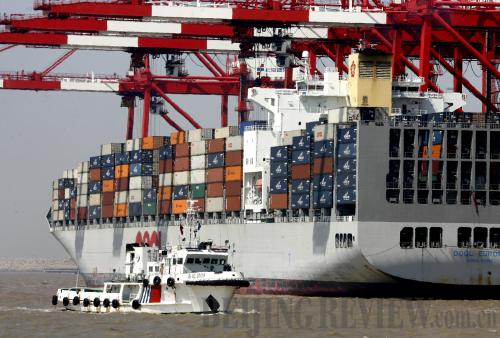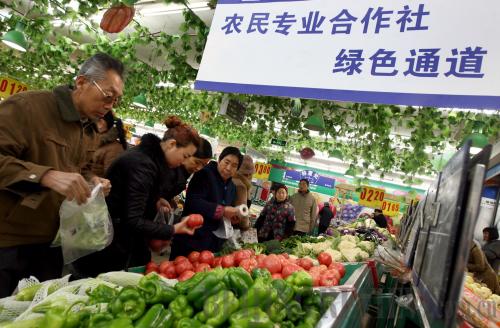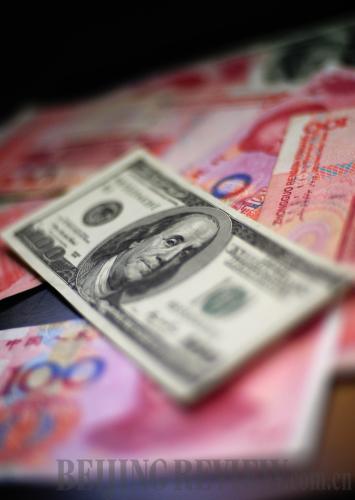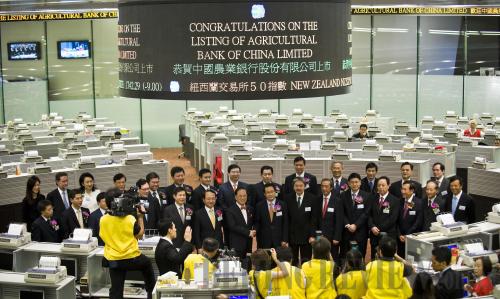| Economic Recovery Continues
 |
|
(CHEN FEI) |
Two years after the financial crisis, recovery hopes have become realities for China.
The country's GDP grew 10.6 percent in the first three quarters of 2010. For the second and third quarters, China's GDP surpassed Japan's, making it the second largest in the world.
Consumption has played a key role in enabling the economy to recover lost ground. Retail sales for consumer goods totaled 13.9 trillion yuan ($2.1 trillion) in the first 11 months, rising 18.4 percent from one year earlier.
Investments have been the biggest engine powering the Chinese economy. Urban investment in fixed-assets soared 24.9 percent in the first 11 months year on year to hit 21.07 trillion yuan ($3.2 trillion). Meanwhile, the government has set its sights on clamping down on excessive investments in energy-depleting and high-polluting industries to steer the economy on a sustainable path of growth.
On the trade front, both exports and imports hit record highs in November at $153.33 billion and $130.43 billion, respectively. The trade volume for the January-November period totaled $2.68 trillion, higher than the whole year's figure of $2.2 trillion in 2009. The trade surplus in the first 11 months stood at $170.42 billion, down 3.9 percent year on year.
Macro-control Measures Toughened
 |
|
(XUE JUN) |
Rising prices across the country, including consumer goods and properties, prompted policymakers to strengthen macroeconomic controls in 2010.
Since July, the consumer price index, an effective gauge of inflation, has grown faster than 3 percent, the government-set target for 2010. The index went as high as 4.4 percent year on year in October and 5.1 percent in November, a record high since July 2008.
Meanwhile, house prices in 70 large and medium-sized cities experienced year-on-year growth of more than 10 percent between February and July. Despite a slowdown since May, the prices still grew 7.7 percent in November.
 |
|
(LONG HONGTAO) |
In response, the government took stiff efforts to cool nationwide inflationary jitters and let air out of the asset bubbles.
In a bid to mop up excess liquidity, the People's Bank of China, the central bank, raised the reserve requirement ratio six times this year, on January 18, February 25, May 10, November 16 and November 29 and December 20, respectively.
The central bank also raised the benchmark one-year lending and deposit rate on October 20, the first increase since December 2007.
On November 20, the State Council announced 16 measures to rein in rising commodity prices, including boosting agricultural production and enhancing price supervision.
Efforts to cool the surging house prices are no less vigorous. The State Council on April 16 issued 10 rules, stipulating down payments must not be lower than 50 percent and mortgage rates must be raised to 1.1 times the benchmark lending rate for a second-home purchase.
On September 29, the government ordered all first-home buyers will have to pay at least a 30-percent down payment, up from a previous 20-percent requirement. In addition, the government also required commercial banks to suspend loans to third-home buyers.
Policymakers at the recently concluded Central Economic Work Conference vowed to take a prudent monetary stance for next year, marking a switch from the appropriately loose policy adopted to counter the financial crisis.
Exchange Rate Reform Proceeds
 |
|
(CFP) |
The People's Bank of China proceeded with the yuan exchange rate reform starting on June 19.
China would keep the yuan "basically stable at a reasonable and balanced level," and manage and adjust the yuan exchange rate based upon floating bonds previously announced in the interbank foreign exchange market, the central bank said.
As of December 22, the yuan has appreciated by 2.1 percent against the U.S. dollar since June 22, the first trading day after the reform.
Starting from July 21, 2005, China has moved into a managed floating exchange rate regime based on market supply and demand with reference to a basket of currencies.
In 2008, when the financial crisis was at its worst, the exchange rate of a number of sovereign currencies to the U.S. dollar depreciated by varying margins. The yuan remained stable. The stability of the yuan exchange rate has played a significant role in mitigating the crisis' impact and promoting global rebalancing efforts.
The central bank also ruled out a one-off yuan appreciation. Large-scale appreciation would hurt the country's economic and financial stability, said the central bank, but a gradual adjustment was necessary to give enterprises time to adjust their business structures.
ABC Goes Public
 |
|
(LU XIAOWEI) |
The Agricultural Bank of China Ltd. (ABC) in mid-July successfully launched its initial public offering (IPO) in dual listings in Shanghai and Hong Kong, to replenish its capital and fuel expansion. The IPO raised a total of $22.1 billion, the largest in the world.
| 